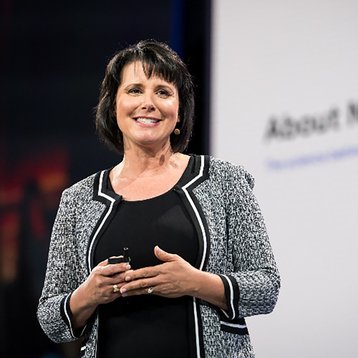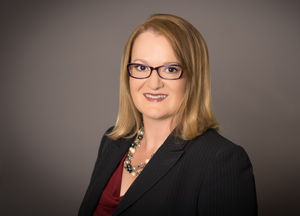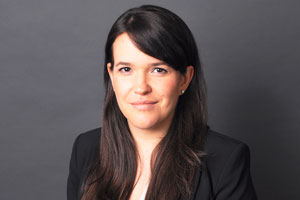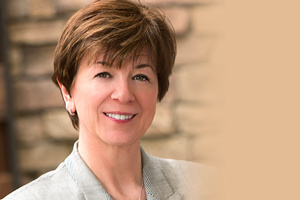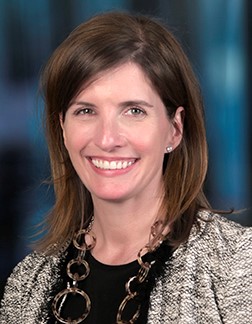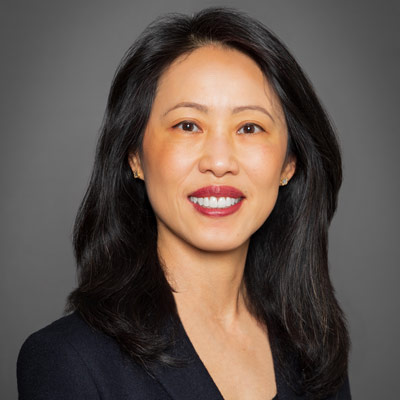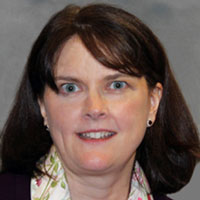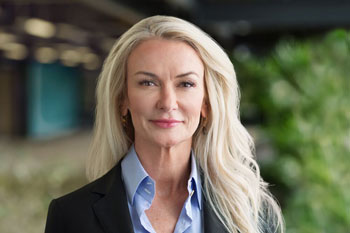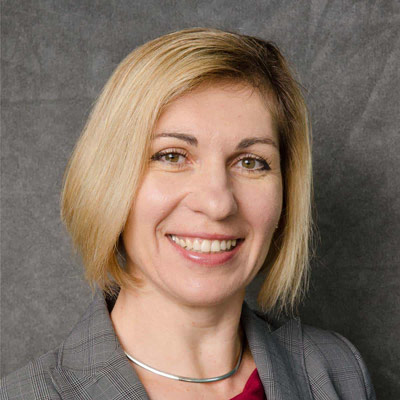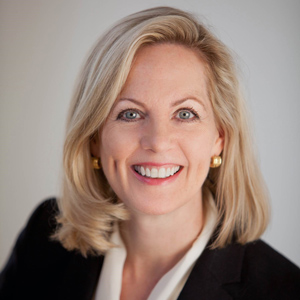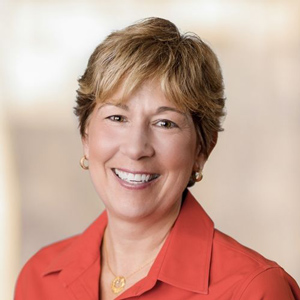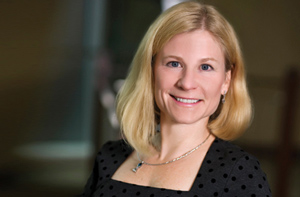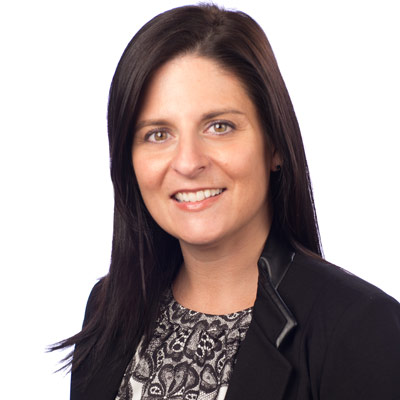To showcase stories about career development of diverse leaders within the REIT industry, Nareit is beginning a series of interviews which will feature the perspectives of executives and rising stars throughout the REIT industry.
To coincide with and in recognition of Women’s History Month, Nareit is speaking with female executives who have an essential role in making the REIT landscape more diverse and successful. Read their advice for young professionals in the REIT industry here.
Check back throughout the month as we add more insights and career advice from female leaders in the REIT industry.
As we kick off our career development series today, on International Women’s Day (March 8), Nareit spoke to these female leaders. Click on the names below to jump to their responses, or scroll down to read them all:
- Kimberly Anstett, CTO, Iron Mountain
- Cathy Barré, executive vice president & general counsel, Nareit
- Laurel Durkay, head of global listed real assets, Morgan Stanley
- Tammy Fischer, president & CEO, National Storage Affiliates
- Mary Hogan-Preusse, founder & principal, Sturgis Partners LLC
- Tammy Jones, co-founder and CEO, Basis Investment Group
- Angela Kleiman, COO, Essex Property Trust
- Sheila McGrath, senior managing director, Evercore ISI
- Colleen McKeown, CHRO, Prologis
- Katherine Motlagh, CFO, CyrusOne
- Laura Nichol, EVP business support, Crown Castle
- Lisa Palmer, president and CEO, Regency Centers
- Smriti Popenoe, president & co-CIO, Dynex Capital, Inc.
- Sherry Rexroad, managing director, global REITs, BlackRock
- Toni Sanzone, CFO, W.P. Carey
We asked each leader: “Can you reflect upon a career-defining moment that led you to your current role?”
Kimberly Anstett, CTO, Iron Mountain
"For me, a career defining moment came in 2013. At that time, I was leading a technology delivery organization for specific line of business and covering for our global CIO who was out on leave. I will never forget that call that would forever change my career path. I was sitting at a baseball field cheering on my five-year-old and his little league team, when I received an urgent call from my colleague in Mexico. She was calling to let me know that we had a fire in our Brazil data center. This wasn't that typical, we have a fire drill call. This was a real fire, and it brought down our business operations.
I quickly found myself on the phone, booking a flight to Mexico to join the regional technology team there. I spent the next two weeks working alongside the team as we rebuilt the data center and restored our business operations. This experience gave me an incredible opportunity to learn about the data center business. I am certain it was the reason that I later became a CIO and ultimately found my way to Iron Mountain. Most importantly, it taught me that I did not have to be fully ready with all of the skills and training that would allow me to lead a team through this type of infrastructure recovery. I learned that stepping into a role that was nowhere near my comfort zone was really the best way to learn and find my place where I could make the biggest impact. It also gave me the opportunity to make lifelong friends through this shared experience, which is a very much unexpected and wonderful gift."
Cathy Barré, executive vice president & general counsel, Nareit
“I've had so many mentors over the years who have challenged, supported and taught me at various stages of my career. They've all played an important role as I reflect on where I am today. The groundwork for my current role began nearly three decades ago when I was a CPA at a public accounting firm working on a myriad of clients that included REITs, Freddie Mac, and Marriott, which was on the cusp of the spin-off of Host Marriott Corporation. From there, I further specialized as part of the valuation team in the firm’s real estate services group.
Then I moved to law school and had the opportunity to explore clients ranging from Fintech to the investment management industry. I finally stepped into public policy with service for then Chairman Grassley of the Senate Finance Committee, and as head of Legislative Affairs at the IRS for the Obama administration Treasury department in the lead up to tax reform. All of those experiences, translating between Washington and Wall Street, have led me to Nareit today.”
Laurel Durkay, head of global listed real assets, Morgan Stanley
“I think the role of mentors have always played a really significant part in both my career and my personal development. It’s so important to try to seek out mentorship from people around you. Within every step of my career, I can look back with such appreciation at the individuals that I worked with, who not only helped shape the professional I am today, but also advocated for me and my development. I think I can honestly say without that support and advocacy of others, I wouldn't have had the career successes that I've enjoyed.
When I reflect back, the most career-defining moment for me was when I pivoted into asset management and investment research. I had been working for about seven years in corporate finance and had earned the CFA charterholder designation, and I was looking to make the move into equity investments. The person who I worked for at the time not only fully supported me, but also proactively used his own network to help me achieve my goals. I'll always be grateful for that, and it just underscores to me how important mentorship and advocacy really is.”
Tammy Fischer, president & CEO, National Storage Affiliates
"I'm not sure there was an exact career defining moment that led me to my current role, but I can reflect on what led me to this position. I began my career in public accounting and spent the lion's share of my time working with clients and learning about their business.
Eventually, my client base became real estate focused, and what I began to notice was that my clients were in the decision-making seat and clearly having way more fun. They were taking more risks, but the opportunities were far greater and it was definitely a more interesting, challenging, and exciting side of the business.
And when the opportunity presented itself for me to help a client achieve a lifetime goal of taking his company public, I jumped on it and frankly never looked back."
Mary Hogan-Preusse, founder & principal, Sturgis Partners LLC
“In 2004, I was an analyst at APG Asset Management. I was a portfolio manager technically, but my main job was to research companies and make investment recommendations. I focused on the retail sector of real estate and a couple of other sectors. And it really came to a head during the summer of 2004. I had a very non-consensus idea in the mall sector where there was a company that was poorly understood, I thought, by the Street. It owned a lot of great malls and it also owned a land business that was difficult to value and, again, poorly understood. The company's growth was kind of unpredictable and not all that impressive, but I thought that the value that the company had was considerable.
This was a time of tremendous consolidation in the mall industry, and a lot of my peers favored companies that were growing much more aggressively through acquisitions. I had a very specific idea that this company was a slow grower based on the numbers, but had considerably more value than anyone thought. And I was about to leave with my family on vacation. I was standing in a bagel store in my hometown and our trader called me and said, "That was sick." And I sort of was all, "Who's sick? What's going on?" And what had happened is this company had entered into an M&A transaction with one of the high growers in the space for a huge premium to where the stock was trading. So it was a huge outsized performance day, which translated into ongoing great performance for our portfolio just the way it was built.
And it was such a non-consensus idea that it ended up being rather high-profile for me. Everybody sort of knew that that was my call. I ultimately got promoted. I ended up running the portfolio at APG, which ended up being a very high-profile position where we were a large owner of a lot of important companies in the industry. I had a lot of visibility being a woman running a large portfolio like that. I also had a lot of board exposure because we were a socially responsible investor and also such a major investor. I would sometimes visit and present to boards about why we owned a company. Actually, one time I went in and explained why we didn't own a particular company, and I talked a lot about our positions on environment, social issues and governance. That ultimately led to what I'm doing today, which is I spend a lot of my time serving on corporate boards in the REIT industry. I also have a consulting business, but that's where I spend most of my time. And if I hadn't had that idea in the summer of 2004, which was an idea that not many people had, I would not be here today.”
Tammy Jones, Co-Founder and CEO, Basis Investment Group
Jones serves as an Independent Director for Mack-Cali Realty Corporation (NYSE: CLI)
Listen to the response from Tammy Jones :
Nareit spoke with @BasisInvGroup Co-founder and CEO Tammy Jones about her career defining moment in recognition of #WomensHistoryMonth and #IWD21. See more interviews with leading executives, including Essex Property Trust, CyrusOne, W.P. Carey - https://t.co/ziWHsIQvES pic.twitter.com/EvEJ5A4MpM
— Nareit (@REITs_Nareit) March 8, 2021
“The most career-defining moment for me happened in the great financial crisis. I think we all remember that the world kind of stopped. Not quite like the pandemic, but it stopped from a doing deals perspective. We were all for a moment not sure exactly what was going to come next. I remember reading the book The Alchemist, and there was a line in the book that said, "There's only one thing that stops you from achieving your dream and it's fear of failure." That hit me like a ton of bricks because I was afraid.
I saw a lot of people throughout my career make significant career moves and become entrepreneurs when there was a downturn or during a cycle. And I knew we were in one. What did I do? I got the courage. I wrote a business plan. I made a list of my top 10 family office investors. At the time, I had access to a number of high-net worth individuals.
And true story, I literally got down to number seven, which means that there were a ton of no’s and a lot of rejection along the way. And then, I got my first $100 million, founded Basis, and the rest is history. We've closed over $4 billion across 400 transactions in 47 states deploying $1.5 billion in capital. That moment, for me, was extremely important. I've always had an entrepreneurial spirit, but my second driver that I reflect on was that I also knew that since I didn't see a lot of women who look like me in the C-suite, it was probably going to be very difficult for me to become a CEO using that route. I always wanted to be the change that I wanted to see, and I knew that I needed to go out and create that role for myself, and I did.”
Angela Kleiman, COO, Essex Property Trust
“I think the most relevant moment is when I transitioned from the investment management world to an operating company. I'd spent the first half of my career in investment banking and then investment management, and as an investor focusing on real estate investment trust and equity investments. I enjoy that capacity as a fiduciary and advisor, but I always wanted to have more direct impact in running a business. So I made the leap, and I am glad that I went from the investment world at JP Morgan to an operating company.
Over the past 11 years at Essex, being able to create a long-term strategic plan, seeing it through implementation, and affecting the tangible results have been incredibly rewarding.”
Sheila McGrath, senior managing director, Evercore ISI
“In reflecting on a career-defining moment for me, I think it was perhaps switching from direct real estate to equity research, following the real estate investment trusts. As a way of background, in business school I was studying finance, but really was drawn to the tangible aspects of commercial real estate. I took some commercial real estate classes and I watched a documentary called Skyscraper, which was on Zeckendorf's development of Worldwide Plaza and that really had me hooked on commercial real estate.
Watching the transformational development of Alexandria's Mission Bay in San Francisco or Brookfield's Manhattan West is still so intriguing to me. I initially targeted a career in commercial real estate appraisal and pursued my MAI designation (it's kind of the CPA of real estate appraisal). It was a great foundation as I worked on all sorts of commercial real estate properties--hotels, malls, multi-family, feasibility studies--but at the time it was in the mid-1990s and all these private real estate companies were coming public. And I really wanted to pivot to publicly traded real estate.
I thought maybe investment banking, and I wasn't even aware of what equity research was, but I have been following the public real estate companies ever since I had an opportunity at Smith Barney in 1994. It was such an amazing time to get involved in the REITs. From 1991 to 1999, there were more than 130 REIT IPOs. It's amazing to recollect the first REIT, Equity Residential, was added to the S&P 500 in 2001 and now there are more than 30 REITs in the S&P 500. I think really, for me, pivoting from direct real estate to the publicly traded world of REITs was a pivotal moment in my career.”
Colleen McKeown, CHRO, Prologis
"I was serving on a private company board and mostly retired, when a colleague I know from one of the big search firms said, "Would you be interested in going back to work for this position at Prologis?" And I said, "I know what a REIT is, but why in the world would they need someone like me and what are they doing?"
It was a fortuitous moment - I met with the person who said, "Look, you'll meet Hamid, he's a founder. He's amazing. And once you get there and understand what he's trying to do with the REIT industry, you'll be hooked. So just do me a favor, take the meeting." So I did, and sure enough what was the defining moment for me was hearing from Hamid how he's trying to take a very old traditional industry and do something more and different with it. I have no REIT background, no experience in real estate, other than probably owning some Cohen & Steers index funds. That was the extent of it. But when I heard Hamid talk about what he's trying to accomplish, move the business forward, focus on the customers, use technology to drive the business differently and better with more data, and then secondly, his personal commitment to inclusion and diversity and changing the face of the real estate industry, I was hooked and here we are almost three years later."
Katherine Motlagh, CFO, CyrusOne
“A career-defining moment happened to me in somewhat unusual circumstances. I just had a baby and I was home on maternity leave, and I thought that to be a good mom, I should stay home. A few months into maternity break, I started missing collaboration and professional interactions with colleagues and started looking for ways to keep my CPA license active. I came across an opportunity to take a class for continuous education. And I met a woman there who became an inspiration of my future career.
She was a working mother of two who was very successful in her career and a respected leader in finance and accounting. And when I asked her how could she do it, she gave advice that I still cherish today. Focus on quality over quantity. And I thought to myself, she can do it and so can I. I decided to return to the workforce and I never looked back. I realized that I didn't have to choose between being a mother and a businesswoman, and that I could balance both and still be able to succeed and pursue my aspirations and raise kids well. Growing up, I looked up to my mom, and when I became a mom, I wanted to set that kind of example for my children so they would believe in themselves as well.
Women in the workplace are often misjudged and stereotyped before their accomplishments speak for themselves. I always stood my ground, and when it came to my peers questioning my abilities based on my gender, and I always have shown my kids that there is a way to be respectful, respected, and not get pushed around. Raising kids take a lot of time and energy, in the same way a professional job does. They both require full attention. It took a lot of adjustments to be able to balance the two.
My husband has been my partner and greatest supporter of my choices. He has had his own successful career, and now we’ve both learned to compromise and support each other. Now I have a daughter who's looking up to me, and I want to show her by example that girls can also do all things they aspire to do, and they can have a career balance and a happy life. And when I look back at my decision, I'm really glad that I had the courage to take advantage of a job opportunity and return to the workforce. It allows me to realize myself in my career, and I also believe it made me a better mother for my children.”
Visit https://cyrusone.com/news-event/international-womens-day/ for more from Katherine Motlagh.
Laura Nichol, EVP business support, Crown Castle
"It has to be in 2001 when I started my own company, RIO Advisors, and I had left a large executive role at a financial services company. My history had been in the financial services field as a banker initially and then building into senior roles. I remember that that was a big and scary leap at the time, but it was the best decision I ever made because pretty quickly I began to get clients. My work was focusing on helping companies implement growth strategies, and I was able to quickly move into working with a wide number of industries. My work was with the executive team and boards, so I got exposed to so many different people, leaders, places—I worked globally. It was incredibly career shaping, but also shaped me as an individual in huge ways. I really learned how to take risks and how to manage through the inevitable changes that happened. I learned that no matter what industry or what part of the world, often leading a company through growth, I was going to run into similar issues.
Because of the time in which I started the company, I was working with a lot of different executives when the great recession hit in 2008. That was just such incredible education, to be able to work with folks again through different countries and different industries as they were implementing their company's growth in really difficult times. So it changed me and it shaped who I am today. My work at Crown Castle is in planning and process and people, and really I couldn't do what I'm doing today unless I had done the work with all the different companies and the exposures that I had."
Lisa Palmer, president and CEO, Regency Centers
“Prior to coming to Jacksonville and joining Regency Centers 25 years ago, I was in management consulting which is very project-based. It was basically four months at a time with different companies, and it was a great learning experience.
The career-defining moment for me was realizing that I really wanted to be part of a team. I wanted to be involved in the building of the company and see the results. I also prioritized family at that moment in time. I was not living in Jacksonville, Florida, but my parents were. I directed my job search there so I could be close to my family.
From there, I looked at what companies were in Jacksonville that I believed I could join—more on the ground level—and then grow with that company.”
Smriti Popenoe, president & co-CIO, Dynex Capital, Inc.
“My current role is the President of Dynex Capital, a leading mortgage REIT listed on the New York Stock Exchange. I'm actually going to talk about three career-defining moments because I couldn't think of just a single one.
The first one was my experience at Freddie Mac. I've been in the capital markets for 27 of my 28-year career. And when I joined Freddie Mac, I was asked to model the risk in their portfolio, and I completely became fascinated with this segment of the fixed income market. I have been in this sector ever since. But really what was interesting for that time period was the foundation that I had as an analyst, and I built the early part of my career around that foundation of being an analyst. So I would say a pivotal moment was really leveraging that analyst training for the first part of my career.
The second pivotal moment is the great financial crisis, and I can probably imagine many financial professionals have that as part of their answer. The interesting thing about that is the experience I had at Wachovia Bank going through the financial crisis there for three years. I feel like I gained 20 years worth of experience in that three years, but it propelled me to having a base of experience that helped me in my next few jobs. I was the Chief Risk Officer at PHH, and then I came here to Dynex. And part of my experience at Wachovia has really helped Dynex put together a series of industry leading one, three and five-year returns. It's helped us outperform in this market.
And then finally, the third one, which I think will also be on the list of many financial professionals, was last year. So last year, in March of 2020, it was an incredible time in the markets. Our disciplined risk management process and economic top-down approach really helped us prepare for the pandemic. Even though we didn't actually expect a pandemic per se, we thought the global economy was fragile. All of that really contributed to Dynex and myself being able to deliver industry leading total returns, in fact, the best total economic return of any company in our space.
I would say those are probably the most pivotal moments, and I did get promoted to being the president at the end of last year. It feels pretty great to have that be sort of a capper from that experience.”
Sherry Rexroad, managing director, global REITs, BlackRock
"I think the big pivot for me was when I was moving from Boston to Philadelphia, and I had five different job offers. What I had been doing was on the debt side of real estate, and the choices I had ranged from more debt opportunities to direct equity to, actually what I ended up doing, which was taking a job in the REIT investment management world. And that really brought me to where I am today.
I took that offer because, you have to remember this is 1997, and it really had such growth potential. And I'd say that was the primary reason that I chose that particular job, as well as just the high quality of people with whom I'd be working. And I've never regretted it. It's been one wonderful voyage since then."
“When I think about moments that led me to my current role, there are many different experiences and people I've encountered along the way that have contributed to the path that brought me here. I'd say the one that stands out the most in terms of being directly related to where I am now ties back to when I first started with W.P. Carey as a global corporate controller. When I joined the company, we had just kicked off a project to replace our ERP systems. It was a transformational initiative and it had cross-functional representation across the company.
While I had some system experience from prior roles, the magnitude of this one was far more significant than anything I'd seen before or had been part of. I joined the project team initially as a representative of the accounting function, but transitioned pretty early on to a leading role for the project as a whole. The project was a high risk but also a high profile project that had the attention of our senior leadership and our board of directors. More importantly for me, it gave me the exposure to understand and design our business platform from the ground up and also embed myself into other functional areas that would be crucial to my growth into where I am now in my current role.
When I really think back to taking on that role proactively, I remember there were a lot of people that shied away from that project because it had a lot of risk and many challenges to overcome. For me, once I was involved, I wanted the project to succeed - not just for accounting, but for the company as a whole. I jumped in with both feet, and 18 months later, we had a successful go live. When I reflect on what that meant to my career, the success of the project was obviously important, but I'd also established myself as a leader across the firm, working side-by-side with my peers and an entire team, and helping drive success for everyone involved. In my opinion, that experience helped create a path of internal growth for me, which ultimately led to my current role as CFO of W.P. Carey.”
Editor’s Note: Interviews have been edited for clarity.
